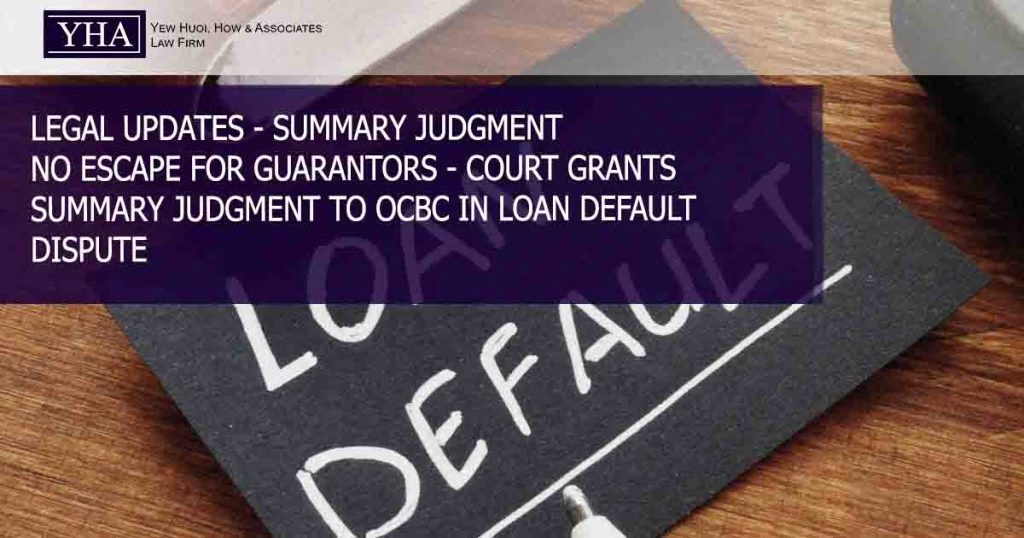1. Summary and Facts
In OCBC Bank (Malaysia) Bhd v Agroglobal Sdn Bhd & Ors [2025] 1 Lloyd’s Rep 558, OCBC Bank filed a suit against Agroglobal Sdn Bhd and several guarantors to recover amounts due under banking facilities in the Singapore High Court. Agroglobal had defaulted on its obligations under various credit facilities extended by the bank. In response to the suit, Agroglobal and the guarantors attempted to resist the bank’s claim by alleging misrepresentation, non-disbursement of funds, and that they had not been properly advised of the liability.
OCBC applied for summary judgment, asserting that the loan documentation was clear and enforceable and that there was no triable issue.
2. Legal Issues
• Whether OCBC had established a prima facie case for summary judgment against Agroglobal and the guarantors.
• Whether the defendants had raised triable issues sufficient to justify a full trial.
• Whether general allegations of misrepresentation or lack of knowledge of the facility terms could defeat a summary judgment application.
3. Court’s Findings
• The Court allowed OCBC’s application for summary judgment.
• OCBC had produced all relevant and executed facility documents, including letters of offer and personal guarantees, evidencing the debt.
• The defendants’ defences were held to be bare denials and not supported by any credible evidence to raise bona fide triable issues.
• The Court rejected claims of misrepresentation or ignorance of the facility terms, especially where the guarantors had signed comprehensive and unambiguous guarantee documents.
• The Court reaffirmed that mere allegations of non-disbursement, unsupported by documentary proof or direct rebuttal of OCBC’s affidavits, were insufficient to defeat summary judgment.
4. Practical Implications
This decision highlights several key principles for financial institutions and borrowers:
• Courts will readily grant summary judgment to banks where the facility documentation is complete and undisputed, and the borrower has clearly defaulted.
• Guarantors cannot avoid liability by simply claiming ignorance of the documents they voluntarily executed.
• Allegations of misrepresentation must be pleaded with specificity and supported by concrete evidence to raise triable issues.
• Summary judgment remains a powerful tool in the hands of financial institutions where borrowers raise mere denials without substantive backing.

